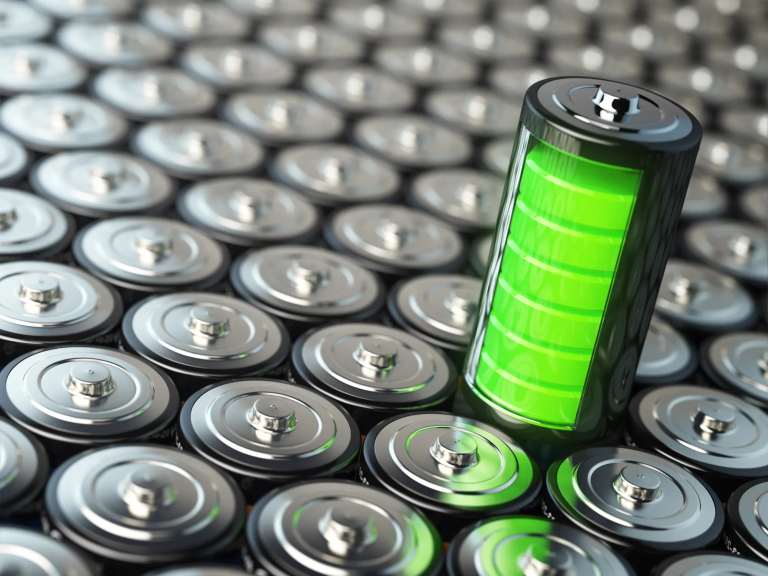Introduction
The demand for faster, more efficient charging solutions for lithium batteries is rapidly increasing as the use of electronic devices, electric vehicles (EVs), and renewable energy storage systems becomes more prevalent. Fast-charging technology aims to significantly reduce the time it takes to charge lithium batteries, addressing one of the primary limitations of current battery technology. This article explores the advancements, benefits, challenges, and future prospects of fast-charging technology for lithium batteries.

Advancements in Fast-Charging Technology
High-Power Chargers
One of the most significant advancements in fast-charging technology is the development of high-power chargers. These chargers can deliver a much higher current to the battery, significantly reducing the charging time. For instance, some high-power chargers can provide up to 350 kW, enabling EVs to charge up to 80% in as little as 15-20 minutes.
Improved Battery Materials
Advancements in battery materials have also played a crucial role in enabling fast charging. New anode materials, such as silicon or silicon-graphene composites, have a higher capacity for lithium ions compared to traditional graphite anodes. These materials can handle higher charging rates without compromising the battery’s lifespan or safety.
Enhanced Electrolytes
The development of advanced electrolytes that can withstand higher voltages and temperatures is another key factor in fast-charging technology. Solid-state electrolytes, for instance, offer improved ionic conductivity and stability at high charging rates, reducing the risk of thermal runaway and improving overall battery safety.
Battery Management Systems (BMS)
Modern battery management systems (BMS) are equipped with sophisticated algorithms and sensors that optimize the charging process. These systems monitor the battery’s state of charge, temperature, and health in real-time, adjusting the charging rate to prevent overcharging and overheating, thus enhancing the battery’s safety and longevity.
Benefits of Fast-Charging Technology
Convenience and Efficiency
Fast-charging technology significantly reduces the time required to charge lithium batteries, making it more convenient for users of electronic devices and EVs. This efficiency is particularly beneficial for EV owners, as it reduces downtime and increases the practicality of electric transportation.
Enhanced User Experience
The ability to charge devices quickly enhances the overall user experience, reducing the inconvenience of long charging times. This is especially important for applications like smartphones, laptops, and other portable electronics, where users expect quick and reliable charging solutions.
Greater Adoption of EVs
Fast-charging technology is a critical factor in the widespread adoption of EVs. The ability to quickly recharge EVs addresses one of the major barriers to their adoption: range anxiety. With fast-charging infrastructure in place, drivers can travel longer distances without worrying about long charging stops.
Support for Renewable Energy Integration
Fast-charging technology also supports the integration of renewable energy sources into the grid. By enabling quick storage and discharge of energy, these systems can help balance supply and demand, making renewable energy more reliable and efficient.
Challenges of Fast-Charging Technology
Heat Management
One of the primary challenges of fast-charging technology is managing the heat generated during the charging process. High charging rates can cause significant heat buildup, which can damage the battery and reduce its lifespan. Advanced cooling systems and thermal management strategies are essential to address this issue.
Battery Degradation
Frequent fast charging can accelerate battery degradation, reducing the overall lifespan of the battery. Researchers are working on developing materials and technologies that can withstand the stresses of fast charging while maintaining long-term performance.
Infrastructure Requirements
The deployment of fast-charging technology requires substantial infrastructure investments, particularly for EV charging stations. High-power charging stations need robust electrical grids and specialized equipment, which can be costly to install and maintain.
Safety Concerns
Fast charging increases the risk of thermal runaway, where the battery overheats and potentially catches fire. Ensuring the safety of fast-charging systems is paramount, necessitating rigorous testing and the implementation of advanced safety features in both the batteries and charging stations.
Future Prospects of Fast-Charging Technology
Solid-State Batteries
The development of solid-state batteries holds great promise for the future of fast-charging technology. Solid-state batteries use solid electrolytes instead of liquid ones, offering higher energy densities, faster charging capabilities, and improved safety. These batteries are expected to play a significant role in the next generation of fast-charging technology.
Advanced Charging Algorithms
Continued advancements in charging algorithms and BMS will further optimize the fast-charging process. Machine learning and artificial intelligence can be used to develop predictive models that optimize charging rates based on usage patterns, battery health, and environmental conditions.
Ultra-Fast Charging
Research is ongoing to develop ultra-fast charging technologies that can reduce charging times to just a few minutes. Innovations in battery materials, charger designs, and cooling systems are paving the way for these next-generation charging solutions.
Global Fast-Charging Networks
The expansion of global fast-charging networks is essential for the widespread adoption of fast-charging technology. Collaboration between governments, automotive manufacturers, and energy providers is crucial to develop a comprehensive and accessible fast-charging infrastructure.
Conclusion
Fast-charging technology for lithium batteries is transforming the landscape of energy storage and consumption. With significant advancements in high-power chargers, battery materials, electrolytes, and BMS, fast charging is becoming increasingly feasible and beneficial. While challenges such as heat management, battery degradation, infrastructure requirements, and safety concerns remain, ongoing research and development promise to address these issues. The future of fast-charging technology looks bright, with innovations such as solid-state batteries, advanced charging algorithms, ultra-fast charging, and global fast-charging networks on the horizon. These advancements will enhance the convenience, efficiency, and adoption of lithium batteries in various applications, driving the future of energy storage and mobility.

